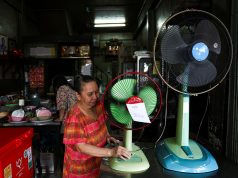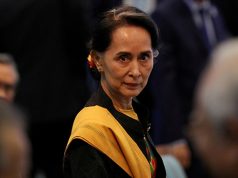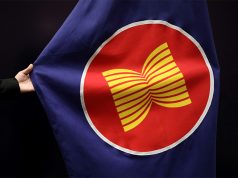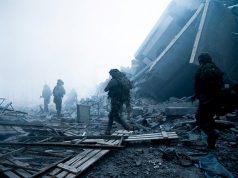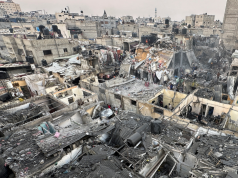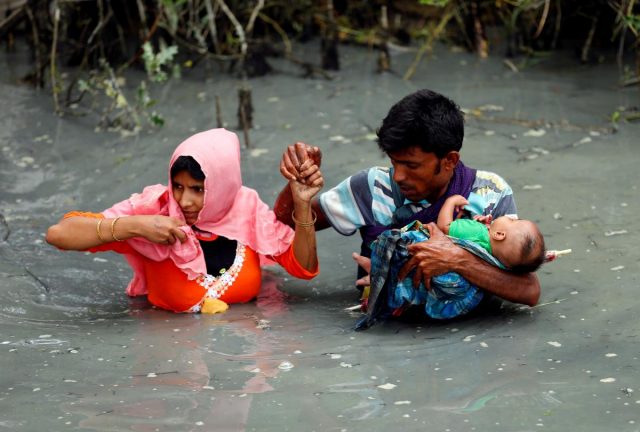
COX‘S BAZAR, Bangladesh — An estimated 270,000 Rohingya have sought refuge in Bangladesh over the past two weeks, the U.N. refugee agency said on Friday, announcing a dramatic jump in numbers fleeing violence in neighboring Myanmar’s Rakhine State.
A rights group said satellite images showed about 450 buildings had been burned down in a Myanmar border town largely inhabited by Rohingya, as part of what the Muslim minority refugees say is a concerted effort to expel them.
The U.N. High Commissioner for Refugees said the estimated number of Rohingya who fled to Bangladesh since violence erupted in Myanmar on Aug. 25 had risen from 164,000 on Thursday, after aid workers found big groups in border areas.
“We have identified more people in different areas that we were not aware of,” said Vivian Tan, a spokeswoman for UNHCR, while adding that there could be some double-counting.
“The numbers are so alarming – it really means that we have to step up our response and that the situation in Myanmar has to be addressed urgently.”
The latest flight of Rohingya began two weeks ago after Rohingya insurgents attacked security force posts in Myanmar’s Rakhine State. That triggered an army counteroffensive in which at least 400 people died.
The United States, a principle backer of Aung San Suu Kyi’s civilian government that came to power in Myanmar last year, said there had been shortcomings on the part of Myanmar security forces and the government in dealing with the situation.
Patrick Murphy, U.S. deputy assistant secretary of state for East Asia, said Washington was calling in talks with Myanmar’s military and civilian leaders for urgent restoration of access to Rakhine State for humanitarian assistance and journalists.
He said the security forces must respond responsibly to the attacks that began the crisis, telling reporters: “They have a responsibility to carry out those activities in accordance with rule of law and international human rights.”
Rights groups briefed U.N. Security Council diplomats on the Myanmar violence on Friday. Russia and China did not send any diplomats, according to people at the meeting. Myanmar has said it is counting on China and Russia to protect it from any Security Council censure.
U.N. Secretary-General Antonio Guterres spoke with Suu Kyi by phone on Wednesday and reiterated his concerns about the situation in Rakhine State, U.N. spokesman Stephane Dujarric told Reuters.
U.S. Ambassador to the United Nations Nikki Haley said the United States was “deeply troubled by continued reports of attacks against innocent civilians and will continue to urge (Myanmar) security forces to respect those civilians as it conducts security operations.”
Washington was also calling on Myanmar to ensure that aid reached those in need as quickly as possible, “and that it is delivered in a manner that protects their rights and dignity,” she said in a statement.
The wave of refugees, many sick or wounded, has strained the resources of aid agencies and communities already helping hundreds of thousands displaced by previous waves of violence in Myanmar. Many have no shelter, and aid agencies are racing to provide clean water, sanitation and food.
“We need to prepare for many more to come, I am afraid,” said Shinni Kubo, Bangladesh country manager for UNHCR. “We need huge financial resources. This is unprecedented. This is dramatic. It will continue for weeks and weeks.”
While most refugees are coming on foot, many are braving the sea. At least 300 boats carrying Rohingya arrived in Bangladesh’s Cox’s Bazar district on Wednesday, the International Organization for Migration said.
Buddhist-majority Myanmar says its security forces are fighting a legitimate campaign against “terrorists” it blames for the attacks on the security forces, burning homes and civilian deaths.
It says about 30,000 non-Muslims have been displaced.
The 1.1 million Rohingya living in Myanmar have long complained of persecution. They are denied citizenship and regarded as illegal migrants from Bangladesh.
WATCH THE REUTERS TV REPORT:
Burned buildings
There is very limited access to the north of Rakhine State and few if any independent witnesses, raising fears that a humanitarian crisis could be unfolding among Rohingya still there.
“What we know is what people are saying as they come across, and what they’re saying now, given this been going on since Aug. 25, is they are in an absolutely desperate state,” said IOM’s Leonard Doyle.
“They say (they are) living out in (the) open, without protection from the tropical sun with their children, without enough food to eat.”
Bangladesh has proposed “safe zones” run by aid groups for Rohingya in Myanmar. But it would seem the plan is unlikely to be accepted there.
Human Rights Watch said satellite images taken last Saturday showed hundreds of burned buildings in Maungdaw, a district capital in Rakhine State, in areas primarily inhabited by Rohingya.
“If safety cannot even be found in area capitals, then no place may be safe,” said Phil Robertson, the group’s deputy Asia director.
A Myanmar reporter in the north of the state said he had reports from residents of an area called Rathedaung that six villages there had been torched and that there had also been shooting in the area. It was not clear who was responsible.
Critics have accused Suu Kyi of not speaking out for the Rohingya and some have called for the Nobel Peace Prize she won in 1991 as a champion of democracy to be revoked.
The United States has been careful to avoid direct criticism of Suu Kyi, and Murphy said Washington was looking to help Myanmar’s transition to democracy succeed.
He noted that most authority in Rakhine State lay with the military, which wielded direct power in Myanmar for decades before Suu Kyi’s election win.
Murphy called for implementation of recommendations of a commission led by former U.N. chief Kofi Annan set up to find solutions for the ethnically and religiously divided Rakhine.
“The fact that over a million people inside the country have been devoid of basic rights for generations has been a long-standing issue,” Murphy said. “It needs to be addressed.”
Protests against the treatment of the Rohingya were held in several countries, including Muslim-majority Bangladesh, Indonesia and Malaysia. Others were held outside Myanmar’s embassies in Tokyo and Manila.
Malaysian Prime Minister Najib Razak said he was considering raising the issue in talks with U.S. President Donald Trump next week.
Malaysia’s coastguard said it was willing to offer Rohingya temporary shelter, although it is unlikely refugees would travel hundreds of kilometrs south by sea during the monsoon season, which lasts until late November.
Thailand has also said it is preparing to receive people fleeing Myanmar, while Singapore said it was ready to help the humanitarian effort.




